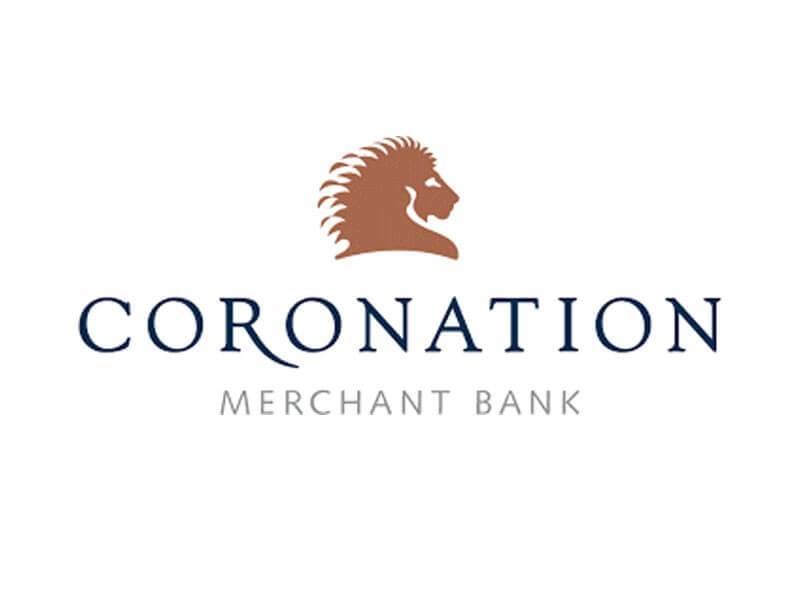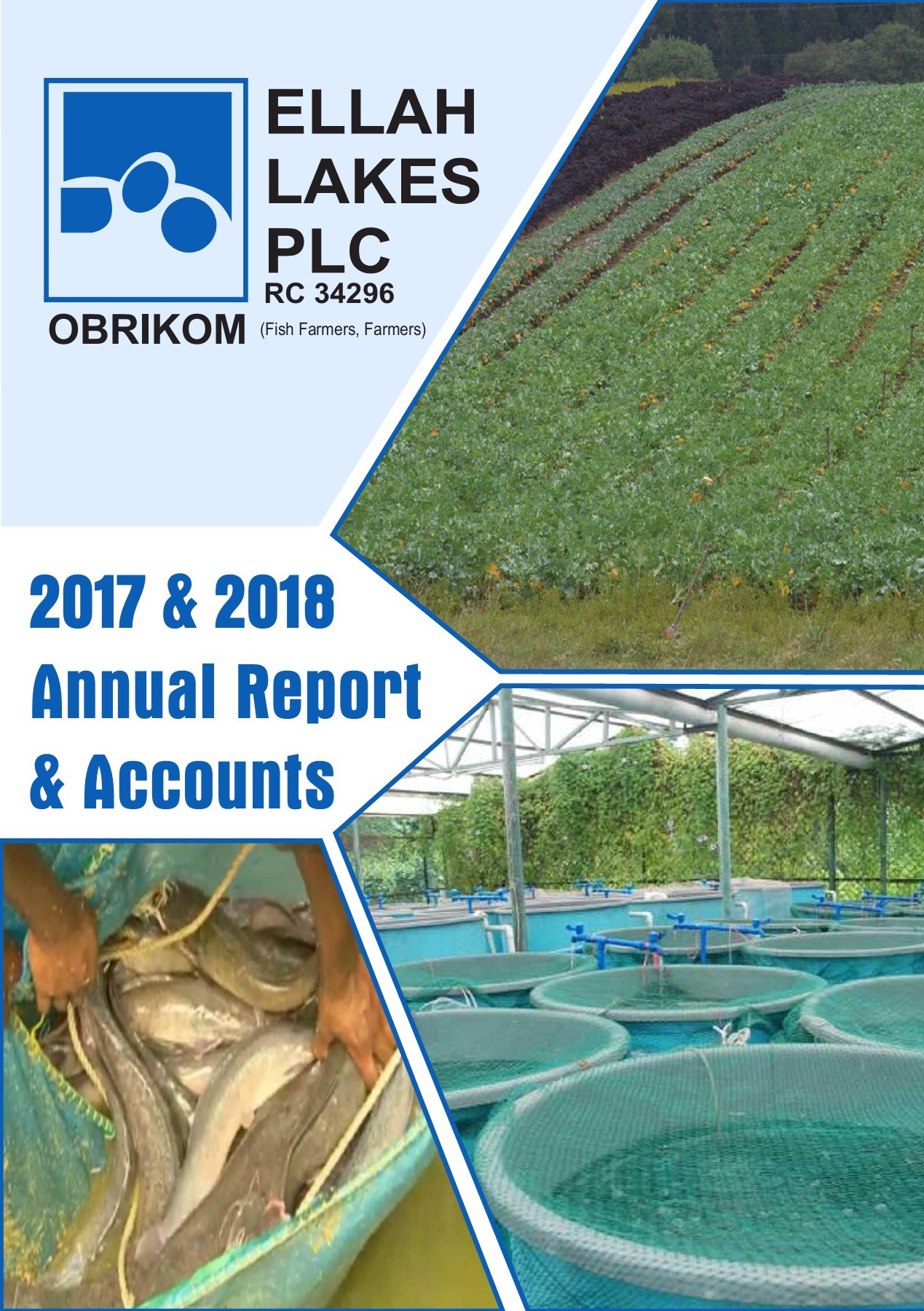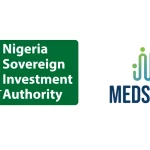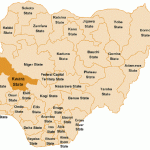Banking
S&P Affirms Fidelity Bank Ratings, Raises Concerns on High Loan Concentration

By Dipo Olowookere
One of the top rating agencies in the world, S&P Global Ratings, has announced affirming its ‘B-‘ long-term and ‘B’ short-term issuer credit ratings on Nigeria-based tier-two lender, Fidelity Bank Plc with a stable outlook.
In a statement issued last Friday and obtained by Business Post, the rating company said it was also affirming its ‘ngBB+/ngB’ Nigeria national scale ratings on the bank.
S&P explained that the affirmation reflects its view that the bank will display relatively moderate earnings compared with the sector average, as demonstrated in 2017, and relatively stable asset quality amid a slow economic recovery in Nigeria.
It noted that although an improvement in systemwide US Dollar liquidity–due to higher oil prices and increased oil and gas production–has eased the pressure on Nigeria’s manufacturing and trade sectors, some corporate entities still suffer from the effects of the foreign currency shortages over the past 24 months.
S&P stressed that the ratings reflect the lender’s modest size and position in the Nigerian banking sector, characterized by a high cost base and sizable funding costs, which have constrained it from competing with certain top-tier banks in terms of profitability.
Fidelity Bank’s regulatory capital adequacy ratio (CAR) declined to 16 percent at year-end 2017 from 17.2 percent in 2016, compared with the regulatory minimum of 15 percent. This was attributable to N15.2 billion (about $45.6 million) charge on capital for exceeding its single-obligor limit, and the amortization of its subordinated local bond.
The rating firm said it expects the single-obligor charge to drop over the next 12 months as the exposure is settled, and that the bank’s CAR will remain above the minimum requirement of 15 percent.
“We project that Fidelity Bank’s risk-adjusted capital (RAC) ratio before adjustments for diversification will decline to below 5 percent and range between 4 percent and 5 percent over the next 12-18 months, compared with 5.2 percent at year-end 2017,” the statement said.
The bank’s initial application of International Financial Reporting Standard (IFRS) No. 9 resulted in a N28 billion reduction in total adjusted capital as of March 31, 2018.
“Our projected RAC ratio takes into account our expectation of low double-digit loan growth, measured underwriting standards, and a naira depreciation, combined with the necessity for growth to counterbalance the decline in government securities.
“We also anticipate good fee and commission revenue generation (supported by the bank’s digitalization strategy) and a cost-to-income ratio of around 70 percent.
“Over the next 12-18 months, we forecast that the bank’s cost of risk will be higher than historical levels, at around the 1.5 percent posted at year end-2017, as it implements IFRS 9,” it added.
As of March 31, 2018, Fidelity Bank’s nonperforming loans (NPL) had declined to 6.3 percent of gross loans from 6.6 percent in 2016, while loan loss reserves accounted for a higher 110 percent of gross loans compared with 51 percent at year-end 2016.
The lower NPL ratio is mainly attributable to debt reduction in the upstream oil and gas sector, which the rating agency expects will continue over the next 12 months, while the higher coverage was due to the initial IFRS 9 application.
S&P said looking ahead, despite the higher expected coverage ratios, the bank’s high loan concentration and foreign currency exposures remain a concern; at year-end 2017, pointing out that the top 20 loans accounted for 59 percent of total loans and foreign currency lending for about 46 percent.
“Nonetheless, we see as positive that foreign-currency denominated loans are typically backed by receivables in the same foreign currency.
“Notwithstanding the relatively high cost of funding, the bank benefits from a stable funding base and adequate liquidity buffers, which compare well with peers’.
On December 31, 2017, the bank’s stable funding ratio was 112 percent and liquid assets covered short-term wholesale funding 6.9x.
“However, similar to other banks operating in Nigeria, Fidelity Bank’s deposit base is confidence sensitive, due to its contractually short-term nature.
“The stable outlook reflects our expectation that the bank will maintain its prudent underwriting standards, its CAR above the minimum regulatory requirement despite the IFRS 9 implementation, and adequate liquidity over the next 12 months,” it said.
S&P stressed that it could lower the ratings over the next 12 months if asset quality deteriorates by more than the sector average, and concentration risk materializes through a default of large exposures, adding that a positive rating action is unlikely in the next 12 months and would require a material improvement in macroeconomic conditions, coupled with stronger capitalization than it currently expects, with the RAC ratio sustainably exceeding 7 percent.
Banking
Coronation Merchant Bank Targets Top-Tier African Status in Next Growth Phase

By Adedapo Adesanya
Coronation Merchant Bank has set its sights on attaining top-tier status among African banks, leveraging a decade of operations and Nigeria’s ongoing economic reforms to drive its next phase of growth across key sectors.
Speaking at the Chairman’s Dinner held to commemorate the bank’s 10th anniversary in Lagos, the chief executive of the lender, Mr Paul Abiagam, said the institution had successfully carved out a distinct niche in Nigeria’s highly competitive financial services market despite a decade defined by economic volatility, policy shifts and macroeconomic uncertainty.
“Over the last 10 years, we have found our own space in a very tight market and built credible footprints in the specific markets we chose to serve,” Mr Abiagam said.
Describing the bank’s journey as “valiant” amid the changing economic landscape, he said the anniversary represents both a moment of gratitude to the bank’s founder, shareholders, board and partners, and a recommitment to scale new heights in the decade ahead.
Mr Abiagam attributed the bank’s resilience and steady growth to strong shareholder and board support, as well as a clear and disciplined corporate strategy.
He noted that Coronation Merchant Bank’s focus on defined target markets had enabled it to expand its footprint across key sectors of the economy while maintaining operational clarity.
Looking ahead, the CEO said ongoing reforms and the Federal Government’s ambition to build a $1 trillion economy present significant opportunities for financial institutions with the right expertise and positioning.
He identified infrastructure, construction, real estate, oil and gas, and manufacturing as priority sectors where the bank is already aligning its strategy.
“Volatility often comes with opportunity, What we see clearly is opportunity, and our strategy is to ensure we are well positioned to take advantage of it.” Mr Abiagam said.
Among the bank’s notable milestones, Mr Abiagam highlighted its international credit ratings, placing Coronation among a small group of internationally rated merchant banks in Nigeria.
He also pointed to human capital as a core strength, describing the bank’s people and talent as its greatest asset.
In his remarks, the Chairman of Coronation Merchant Bank, Mr Babatunde Folawiyo, reflected on the challenges of operating in Nigeria’s banking sector over the past decade, noting that the true measure of success lies in an institution’s ability to grow through uncertainty and emerge stronger.
“Anyone who has operated in Nigeria’s banking space over the last 10 years knows how challenging it has been,” Mr Folawiyo said, citing policy changes, macroeconomic shifts and leadership transitions. “The real test is whether you can grow through those challenges—and we have.”
Mr Folawiyo said recent reforms have introduced greater certainty into the economy, particularly in the foreign exchange market, which is critical for business planning and sustainable growth. While acknowledging that the adjustment period has been difficult, he stressed that predictability, even at higher exchange rates, is far more beneficial than extreme volatility.
“No business thrives without some level of stability. What hurts the economy most is wild and sudden swings. Predictability allows businesses to plan, adjust and grow,” he said.
On the outlook for the sector, Mr Folawiyo said Nigeria remains significantly underbanked, creating room for diverse players within the financial system. While technology and fintechs are expanding access to financial services, he emphasized the enduring role of specialized institutions such as merchant banks in serving corporate and structured finance needs.
“A corporate client structuring commercial papers or complex funding solutions needs more than a fintech app. It needs a bespoke, one-stop financial partner. That is where merchant banks like ours play a critical role,” the Chairman said.
He added that Coronation Merchant Bank’s strategy is anchored on long-term economic fundamentals rather than political cycles, noting that the current policy direction of the Central Bank and the Federal Government, though initially painful, aligns with sound economic principles.
“These are textbook reforms. There is no gain without pain, and we are already beginning to see the gains, not just in the financial sector but across the broader economy,” he added.
Banking
S&P Forecasts 25% Credit Growth for Nigerian Banks in 2026

By Adedapo Adesanya
Nigerian banks are expected to post stronger credit growth of up to 25 per cent in 2026 while retaining positive profitability, according to a new outlook by S&P Global Ratings.
In its Nigerian Banking Outlook 2026, S&P said improved lending to key sectors of the economy alongside resilient non-interest income would help banks absorb the impact of regulatory headwinds and easing interest rates.
The ratings agency projected credit growth of between 20 and 25 per cent in 2026, driven largely by increased investments in oil and gas, agriculture and manufacturing.
It added that the outlook for lending was supported by expectations of moderating inflation and gradual monetary easing, following recent interest rate cuts by the Central Bank of Nigeria (CBN).
“We expect credit growth of about 20-25 per cent supported by investments in the oil and gas, agriculture, and manufacturing sectors. Although interest rates have started to decrease, profitability should stay resilient in 2026, supported by growth in non-interest income (NII) and lower provisions.
“We expect Nigerian banks to prove resilient and capable of preserving their profitability in 2026,” S&P said, noting that earnings would be supported by transaction driven fees, commissions and a still elevated cost of risk, even as margins come under pressure.
The ratings agency noted further that it expects nominal lending growth to remain high at about 25 per cent, supported largely by investments in the oil and gas sector, agriculture and manufacturing.
S&P said Nigerian banks would continue to benefit from rates that remain high relative to peers, supporting net interest margins while interest rates are expected to decline further in 2026.
“Although interest rates have started to decline, we expect rates to remain high relative to peers, which will continue to support banks’ net interest margins through 2026.
“We forecast the average return on equity (ROE) will normalise at 20-23 per cent in 2026 compared to 25 per cent estimated for 2025, while return on assets will decline marginally to 3.0-3.1 per cent from an estimated 3.3 per cent in 2025. Profitability will be supported by still high interest margins, growing NII, and slightly lower provisions, while capital issuance will increase the equity base leading to a lower ROE.
“Although interest rates have started to decline, we expect rates to be high relative to peers, which will continue to support the banks’ net interest margins through 2026. We forecast an average margin drop of about 50bps to 100bps in 2026, as banks’ margins will continue to benefit from higher yields on government securities and large recourse to low-cost customer deposits.”
Banking
CBN Targets Reforms to Ease Compliance Burdens on Fintech Firms

By Aduragbemi Omiyale
To ease regulatory compliance burdens on financial technology (fintech) companies, the Central Bank of Nigeria (CBN) is considering some strategic reforms through a policy known as the Single Regulatory Window.
In its 2025 Fintech Report, the central bank said this scheme will significantly reduce time-to-market for new digital financial products by streamlining licensing and supervisory processes across multiple agencies.
The CBN said there would be a shared regulatory infrastructure in form of a Compliance-as-a-Service model to cut down duplicative reporting, ease the burden on regulated fintechs, and enhance supervisory visibility.
The apex bank said it came up with this idea after being aware of some challenges stakeholders, especially operators, go through in the ecosystem.
The bank said fintech firms remain a critical leg in its financial inclusion drive in Nigeria and must be supported to expand their operations to achieve the goal.
The CBN report showed that 62.5 per cent of fintech firms lamented how regulatory timelines materially affect product rollouts, while over one-third noted that it takes more than 12 months to bring a new product to market, largely due to compliance bottlenecks.
“Stakeholders cited delays in approvals and ambiguity in regulatory guidelines as their most pressing concerns,” a part of the report disclosed.
The report recommended “exploring models for a Single Regulatory Window to simplify multi-agency compliance processes and reduce time-to-market.”
It was also suggested that to address the issues, the bank must review “approval timelines and operational guidelines.”
In addition, the central bank was advised to either review the PSB framework or introduce a dedicated digital banking licence that would enable inclusive lending under stronger prudential oversight.
“A dedicated digital bank licence may be a more effective pathway for inclusive lending than expanding the PSB mandate,” the respondents suggested.
As for digital assets, the CBN signalled a shift towards a more nuanced regulatory framework for cryptocurrency, balancing innovation with financial integrity rather than imposing blanket restrictions, as fintechs acknowledged crypto’s potential to drive cost-effective cross-border transactions and strengthen remittance channels, while also warning of risks linked to illicit flows and consumer protection.
“There was broad agreement on the need for a risk-based, activity-focused regulatory framework,” the report stated, adding that regulators must avoid equating all crypto activity with criminality, especially as many scams originate offshore.
-

 Feature/OPED6 years ago
Feature/OPED6 years agoDavos was Different this year
-
Travel/Tourism9 years ago
Lagos Seals Western Lodge Hotel In Ikorodu
-

 Showbiz3 years ago
Showbiz3 years agoEstranged Lover Releases Videos of Empress Njamah Bathing
-

 Banking8 years ago
Banking8 years agoSort Codes of GTBank Branches in Nigeria
-

 Economy3 years ago
Economy3 years agoSubsidy Removal: CNG at N130 Per Litre Cheaper Than Petrol—IPMAN
-

 Banking3 years ago
Banking3 years agoSort Codes of UBA Branches in Nigeria
-

 Banking3 years ago
Banking3 years agoFirst Bank Announces Planned Downtime
-

 Sports3 years ago
Sports3 years agoHighest Paid Nigerian Footballer – How Much Do Nigerian Footballers Earn























